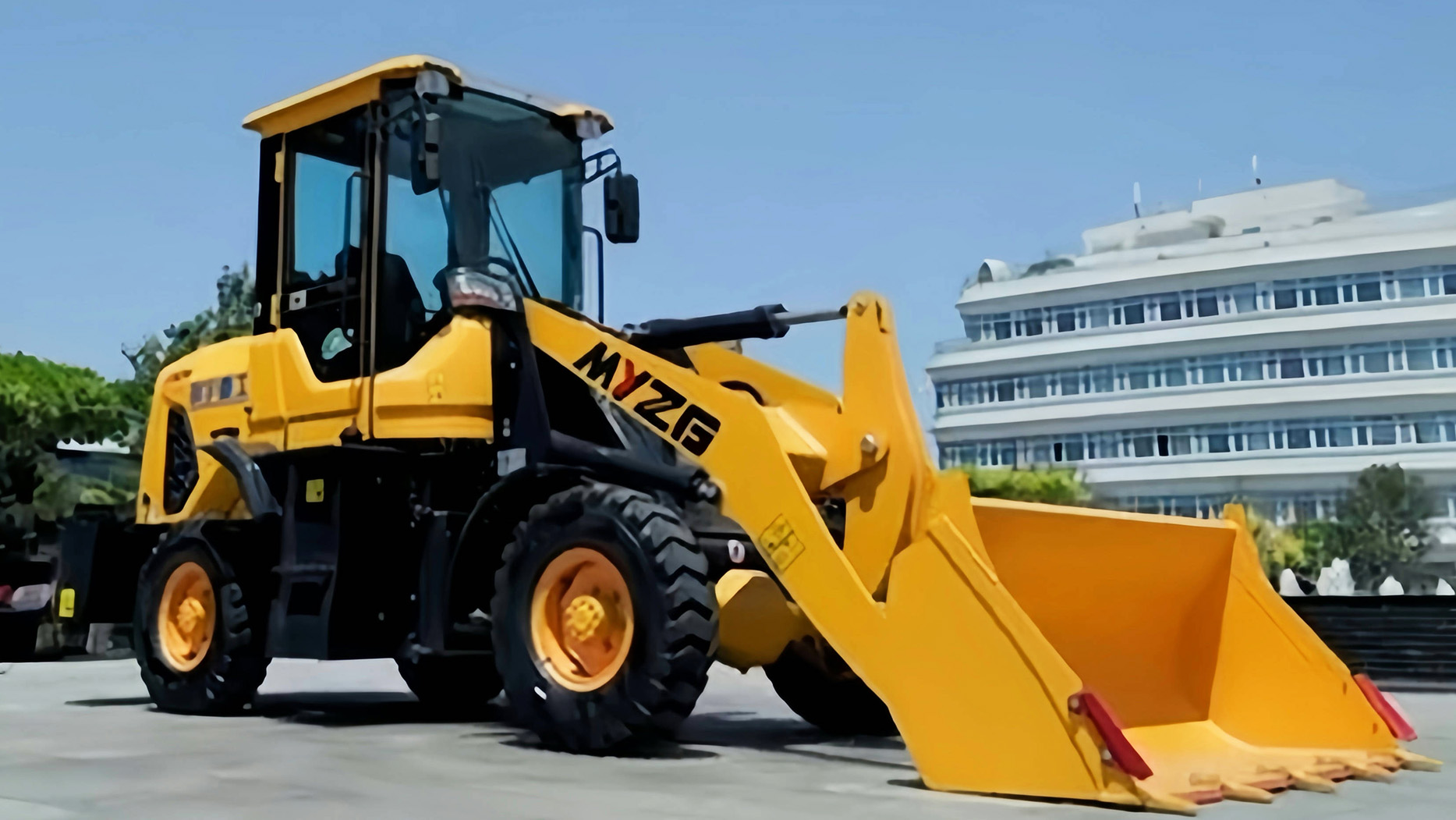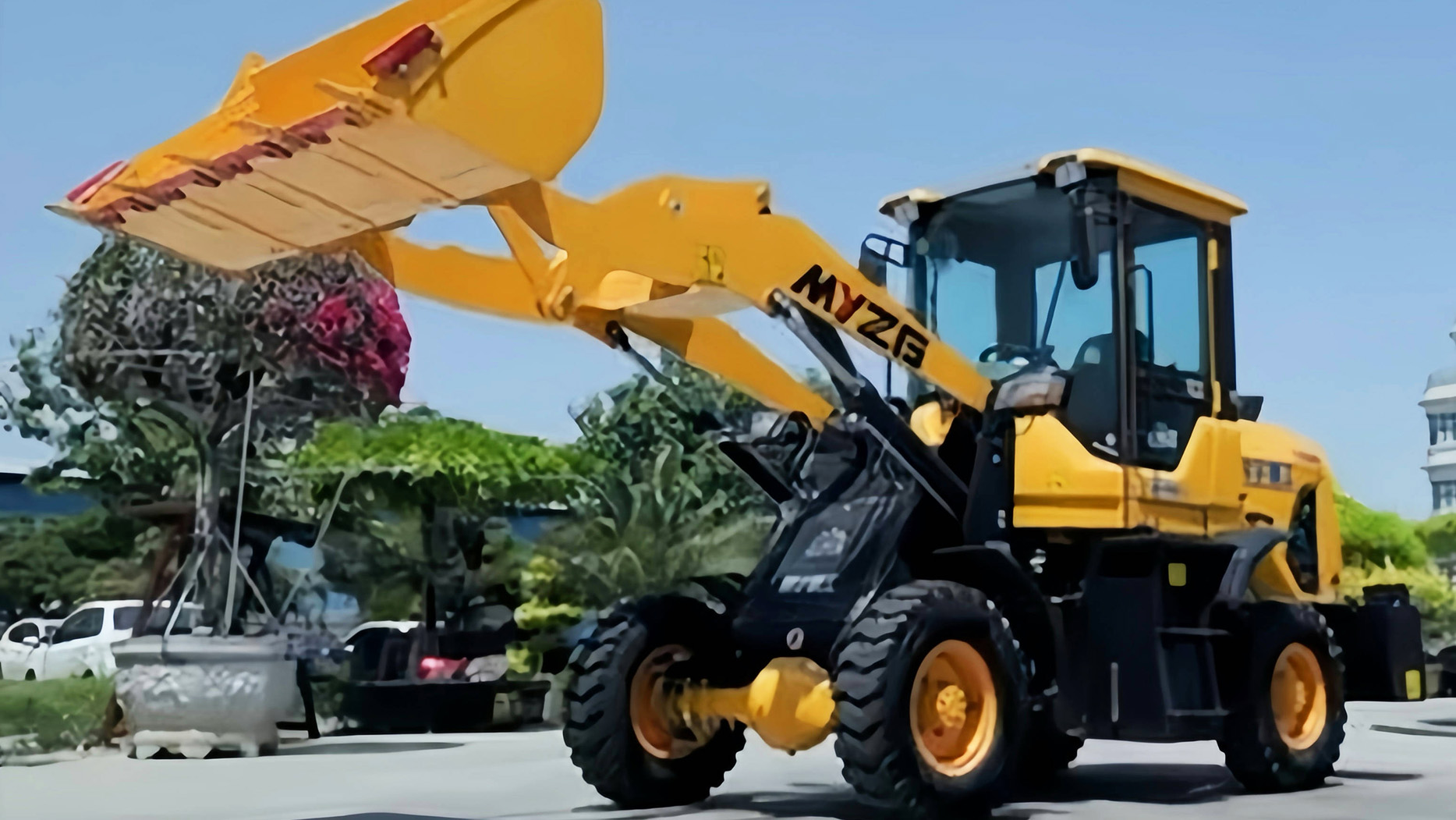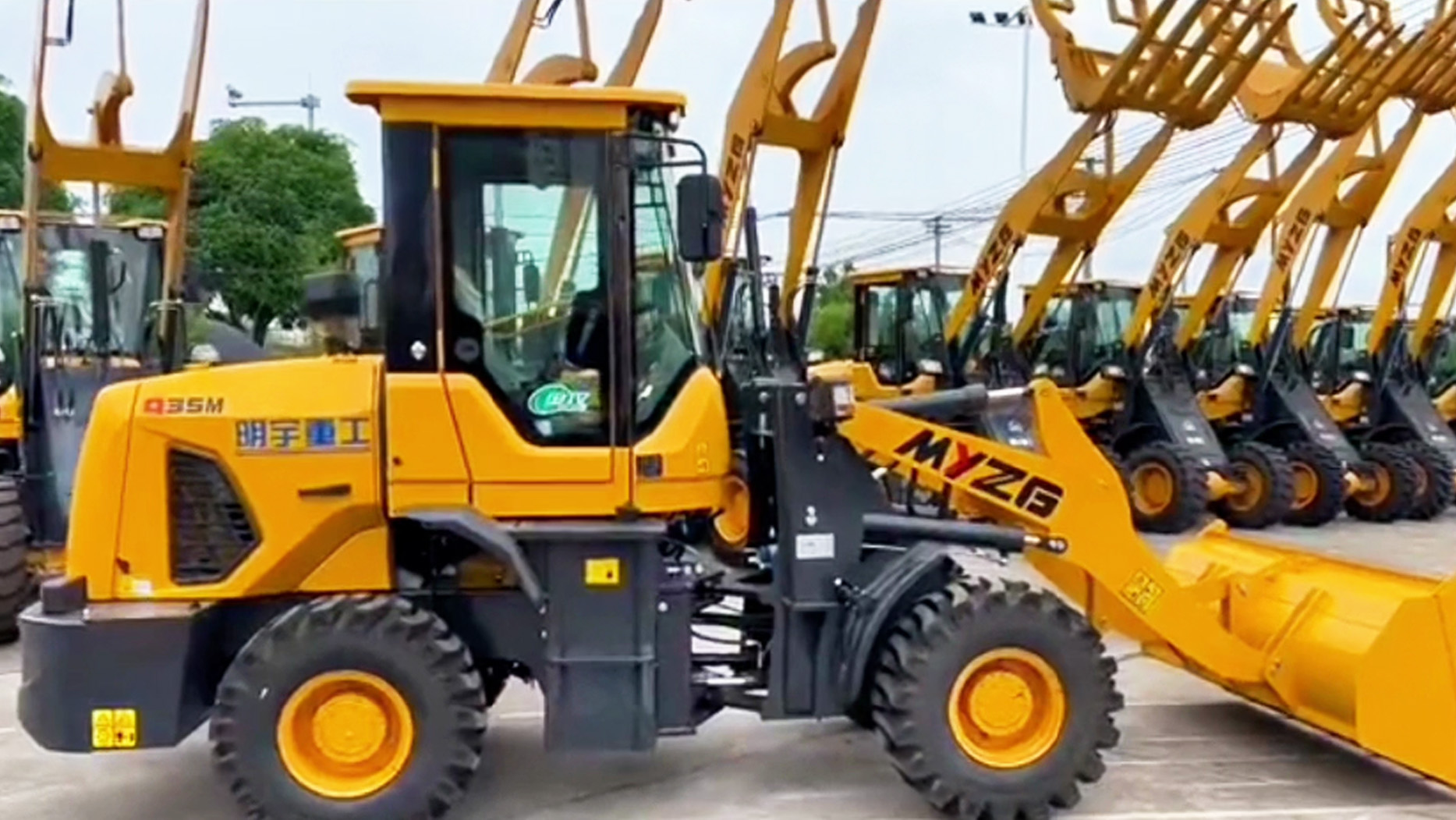I. Introduction
Wheeled loaders are one of the most widely used pieces of heavy machinery in construction, agriculture, and industrial applications. These machines, also known as front-end loaders or bucket loaders, are equipped with a wide bucket at the front, used for lifting and transporting materials such as soil, gravel, sand, and debris. Their efficiency, mobility, and versatility make them an indispensable tool for many industries.
The importance of wheeled loaders lies in their ability to perform various tasks with ease. Unlike tracked loaders, wheeled loaders offer greater speed and maneuverability, making them more suitable for applications where mobility is crucial. In this article, we will explore the major advantage of wheeled loaders and how they compare to other heavy machinery. We will also discuss their various applications, benefits, and considerations for choosing the right equipment for specific tasks.
II. Understanding Wheeled Loaders
A. Definition and Primary Function
A wheeled loader is a type of heavy equipment designed to move materials efficiently over short distances. It features a large front-mounted bucket connected to an articulated arm that allows the operator to scoop, lift, and dump materials as needed. These machines are powered by diesel engines and come in various sizes, from compact models used in landscaping to large industrial loaders designed for mining and quarry operations.
B. Comparison with Other Types of Loaders
Tracked Loaders: These loaders use tracks instead of wheels, providing better stability and traction in rough or muddy terrains. However, they are slower and cause more surface damage compared to wheeled loaders.
Skid Steer Loaders: Smaller and more compact, skid steers are ideal for confined spaces. While they are highly versatile, they lack the power and load capacity of a wheeled loader.
Backhoe Loaders: These machines combine the capabilities of a loader and an excavator. While versatile, they are not as efficient as dedicated wheeled loaders for bulk material handling.
C. Key Components and Operational Mechanism
Engine: Provides the necessary power for operation.
Hydraulic System: Powers the lifting and tilting of the bucket.
Articulated Steering: Enhances maneuverability in tight spaces.
Cabin: Designed for operator comfort with controls for efficient handling.
III. Major Advantages of a Wheeled Loader
A. Mobility and Speed
One of the most significant advantages of a wheeled loader is its ability to move quickly between job sites. Unlike tracked loaders, which operate at a slower pace, wheeled loaders can achieve higher speeds, making them more efficient for tasks that require frequent relocation.
B. Versatility
Wheeled loaders can be equipped with a variety of attachments, such as forks, grapples, and snowplows, making them suitable for different applications. This adaptability allows them to be used in industries such as:
Construction (moving dirt and gravel)
Agriculture (handling feed and manure)
Waste management (loading and transporting debris)

C. Fuel Efficiency and Cost-effectiveness
Compared to tracked loaders, wheeled loaders consume less fuel, reducing overall operational costs. Additionally, their tires require less maintenance than the tracks of tracked loaders, which are prone to wear and tear, leading to lower long-term expenses.
D. Reduced Ground Damage
Tracked machines tend to cause significant surface damage, especially on paved roads or delicate surfaces. Wheeled loaders exert less pressure on the ground, making them ideal for urban construction projects and industrial environments where maintaining road integrity is essential.
E. Ergonomics and Operator Comfort
Modern wheeled loaders are designed with operator comfort in mind. Features such as climate-controlled cabins, ergonomic seats, and advanced joystick controls help reduce operator fatigue, leading to increased productivity over extended work periods.
F. High Load Capacity and Efficiency
Wheeled loaders are designed to handle heavy loads efficiently. Their powerful hydraulic systems allow them to lift and dump materials with precision, making them indispensable for tasks that require frequent material movement.
IV. Case Studies and Real-World Applications
A. Construction Industry
Wheeled loaders play a crucial role in construction projects by transporting raw materials, clearing debris, and assisting in excavation work. Their ability to move quickly between job sites makes them a preferred choice for contractors working on large-scale projects.
B. Mining and Quarry Operations
In mining and quarrying, wheeled loaders are used to transport extracted materials such as ore and stone. Their high load capacity and durability allow them to operate efficiently in harsh environments.
C. Agricultural Applications
Farmers use wheeled loaders for various agricultural tasks, including moving hay bales, handling feed, and cleaning livestock areas. Their adaptability with different attachments makes them essential machinery in modern farming operations.
D. Waste Management and Recycling Centers
Wheeled loaders are widely used in waste management facilities for handling large volumes of recyclable materials and debris. Their speed and efficiency help improve operational productivity in recycling centers.

V. Limitations and Considerations
While wheeled loaders offer many advantages, there are some limitations to consider:
Not Ideal for Extremely Rough Terrains: In muddy or rocky environments, tracked loaders offer better stability and traction.
Higher Initial Cost: Larger wheeled loaders can be expensive, requiring significant investment.
Performance in Snowy or Icy Conditions: Tires may struggle in extreme winter conditions, requiring additional traction aids like chains.
VI. Conclusion
Wheeled loaders are a vital component of many industries, offering exceptional mobility, versatility, and cost-efficiency. Their ability to perform multiple tasks with ease, along with their reduced ground impact and fuel efficiency, makes them a superior choice for many operations.
As technology advances, modern wheeled loaders continue to evolve, incorporating smart features such as GPS tracking, automation, and improved fuel efficiency. Investing in the right wheeled loader can significantly enhance operational productivity, making it a worthwhile addition to any fleet of heavy machinery. Whether in construction, agriculture, mining, or waste management, wheeled loaders remain an essential tool for efficient and effective material handling.
Post time:Apr.09.2025

